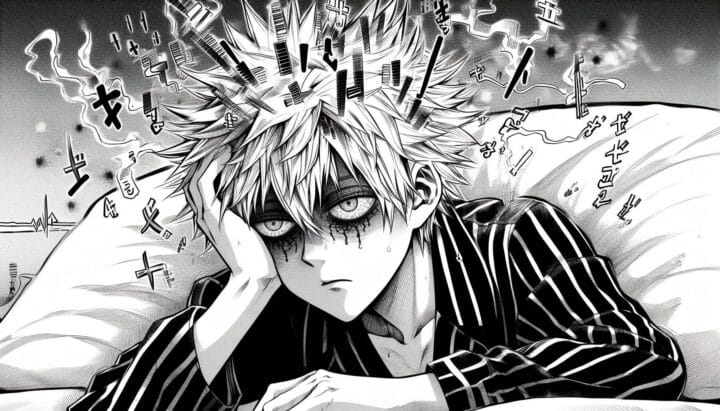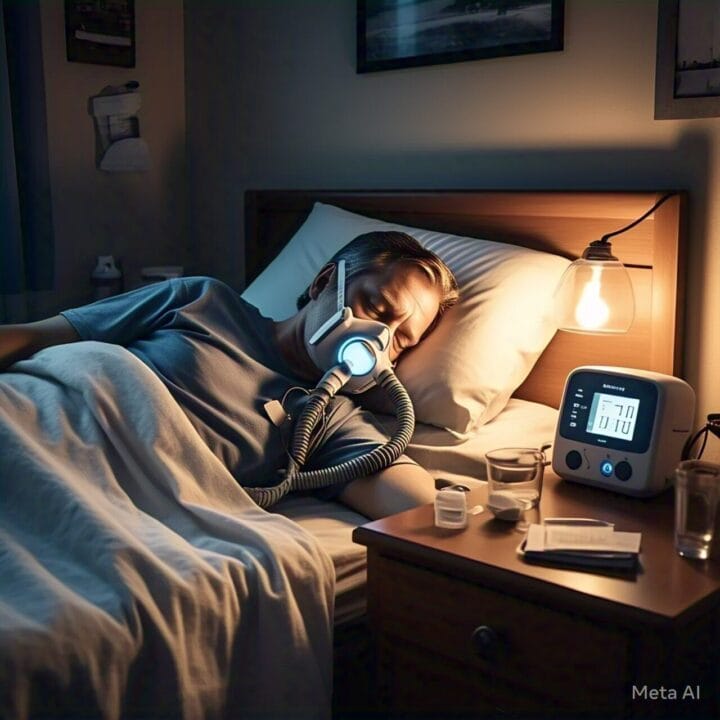Can Insomnia Give You Headaches?
Table of Contents

Can Insomnia Give You Headaches?
Have you ever struggled to sleep at night and then woke up with a bad headache? You’re not alone. Insomnia and headaches often go together, creating a frustrating cycle. Let’s explore why this happens and what you can do about it.
The Link Between Insomnia and Headaches
Yes, insomnia can definitely lead to headaches. In fact, people who have trouble sleeping are two to three times more likely to experience headaches than those who sleep well. But why does this happen?
How Lack of Sleep Affects Your Head
When you don’t get enough sleep, your brain doesn’t function properly. It’s like trying to drive a car with no fuel – it just doesn’t work well.
- Your ability to handle pain decreases
- Stress hormones increase
- Brain chemicals become unbalanced
All these factors can lead to headaches.
Types of Headaches Caused by Insomnia
Not all headaches are the same. Insomnia can trigger different types:
Tension Headaches
These headaches feel like a tight band around your head. When you don’t sleep well, your stress levels rise, leading to muscle tension and pain.
Migraines
Insomnia is a common trigger for migraines. It’s as if your brain is saying, “If I can’t sleep, you’re going to feel it!”
Cluster Headaches
These headaches often occur at night, making it even harder to sleep. This creates a frustrating cycle.
Which Comes First: Insomnia or Headaches?
It can be hard to tell whether insomnia causes headaches or if headaches lead to insomnia. Often, it’s a bit of both. Pain keeps you awake, and lack of sleep causes more pain. It’s a cycle that can be tough to break.
How to Break the Cycle
So, how can you stop this cycle of insomnia and headaches? Here are some tips:
Stick to a Sleep Schedule
Go to bed and wake up at the same time every day, even on weekends. Your body likes routine.
Create a Bedtime Routine
Wind down with relaxing activities before bed. Read a book, take a warm bath, or do some light stretching.
Limit Screen Time
The blue light from your phone or computer can mess with your sleep. Try to avoid screens at least an hour before bed.
Watch What You Eat and Drink
Avoid caffeine, alcohol, and heavy meals close to bedtime. These can disrupt your sleep and trigger headaches.
When to See a Doctor
If you can’t break the cycle of insomnia and headaches, it may be time to consult a doctor. Consider seeing a healthcare professional if:
- Your headaches are severe or happen often
- Over-the-counter medications aren’t helping
- You have trouble functioning during the day
A doctor might suggest:
- Sleep studies to check for underlying issues
- Therapy to help with sleep problems
- Medications for sleep or headaches
Conclusion
Insomnia can definitely lead to headaches, but you don’t have to suffer. By addressing your sleep issues, you might be able to reduce or eliminate those headaches. Remember, good sleep is essential for your health. Your brain and body will thank you for prioritizing it.
FAQs
Is it normal to wake up with a headache every day?
Waking up with a headache regularly isn’t normal and could indicate a sleep disorder or other health issue. It’s a good idea to talk to a healthcare provider about it.
Can sleeping too much cause headaches?
Yes, oversleeping can also trigger headaches for some people. It’s important to find a balance.
How quickly can lack of sleep cause a headache?
For some people, even one night of poor sleep can lead to a headache.
Are there quick fixes for headaches caused by insomnia?
You can try deep breathing exercises or a cool compress on your forehead, but it’s important to address the sleep issues for long-term relief.
Can sleeping in certain positions help prevent headaches?
Sleeping on your back with proper neck support may help reduce tension headaches for some individuals.













Post Comment